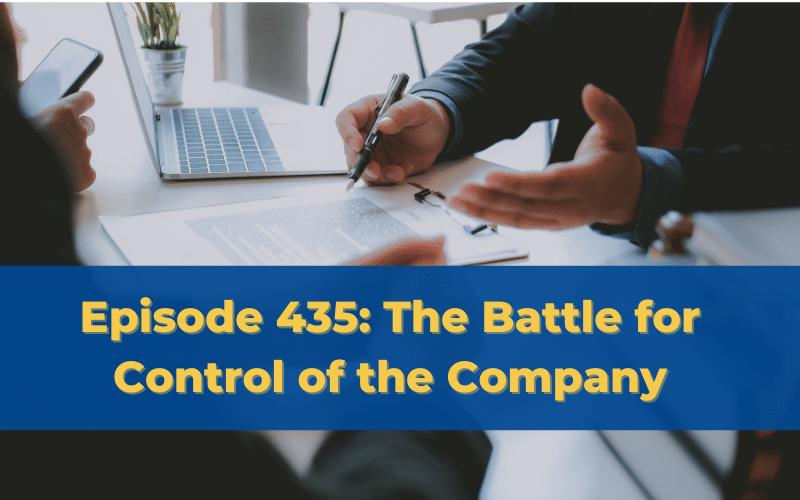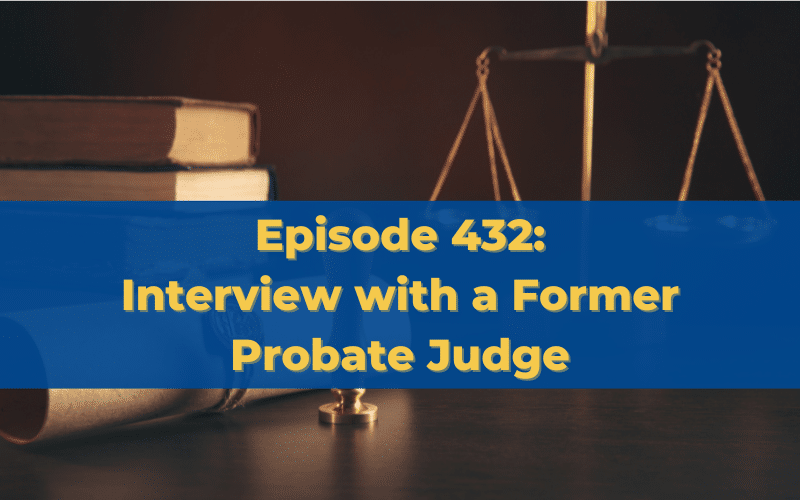Podcast: Play in new window | Download | Embed
Subscribe Apple Podcasts | RSS | Subscribe:
The birth of a business is characterized by a sense of positivity. Often little thought is given to setting the parameters for a potential battle for control of the company if disagreements between owners begin to cause an impasse. Having a vague business agreement can lead to substantial legal problems, not only for the owners, but for the business itself.
Fortunately, by working with a qualified attorney when forming the company, new business owners can flesh out a comprehensive business agreement that includes the protocol for the unthinkable. If certain events should occur, a well-planned business agreement will protect all involved.
The “Bright Side” of Partnerships
The majority of people who engage in business partnerships do so with the understanding that they are able to work well together. Initially, they are confident enough in each other to share a fifty-fifty ownership of the company without requiring anything more than a standard template.
We often hear budding entrepreneurs claim that a comprehensive business agreement is not needed. The most common reasons are:
- “We wholeheartedly believe we will do very well.”
- “We are going to make lots of money with our company.”
- “We are of like mind and always agree with one another.”
- “We have total belief in the business’ mission.”
- “Even if there turns out to be something that causes us to dissolve the company, we will just split everything fifty-fifty.”
The bright side of partnerships can be beautiful, but it seldom stays that way when problems arise.
Acknowledging Both Success and Failure Can Cause Problems
Most business owners mistakenly believe that only failure will bring problems to a company and its ownership, but the reality is that success can be equally responsible for demise in a partnership.
When there is some sort of failure within the company, these are some of the forms it can take:
- If one party doesn’t have any money, they may want the other one to put up the money instead.
- It may be viewed as unfair if one partner puts in money, but the other one does not want to.
- If one party brings in a contact base of family and friends and the other party does not, it can be seen as lopsided effort.
- If there are liabilities, one partner may want to force the other one to pay.
- If a pay cut is required, one partner could demand the other take it while they themselves do not.
Success of the business can also create problems in the partnership, and this typically takes forms in three primary ways:
- One partner wants to sell out due to their current success, but the other does not.
- One party may embrace success and want to take it easy, while the other prefers to keep their workload the same or even increase it.
- With funds from new success, the partners may disagree on whether they take on more debt or pay off the debt they have.
In addition to failures and successes, life in general can bring up issues for the partners. For example, one partner may become older or not healthy and want out. Death of one of the partners can also bring about issues with the deceased’s estate and the partnership.
In the end, whether it is due to failure, success, or life, various circumstances can cause partners to be on different pages with how to run the business. Theoretically, most partners think they can just split up the business if they decide to go their separate ways, but it is far more complicated than this, and it often leads to a battle for control of the company.
What the Battle for Control of the Company Can Look Like
When two partners are at odds, the battle for control can look quite different depending on the specific details, or lack thereof, in the initial business agreement.
In general, when there are two partners who are not working well together anymore but their partnership agreement is silent as to what should happen in this event, one of three things takes place:
- Both partners simply live with it and just continue on.
- The partners decide to go their separate ways and sit down to negotiate a settlement regarding that decision.
- They are forced to hire lawyers, file lawsuits, and have receivers appointed.
Before the partners decide which of the three pathways they want to choose going forward, the best thing to do is keep the lines of communication open to discuss what each of them wants to do and where they want to get in the process.
Potential Stumbling Blocks to Ending a Partnership
In the battle for control of the company, there are a few stumbling blocks that can play a large role in which of the above three ways they choose to move forward.
- Customer-base. The partners may fight over who gets the business’ customers once the partnership is dissolved.
- Manner of division. Some partners choose to split the business into parts and award some to each partner. However, this can be tricky because they could have an emotional or monetary attachment to the business they have helped build. This then necessitates a buyout agreement.
- Most businesses are financed by some sort of loan, and banks will require guarantees. Problems can arise if the exiting partner wants to be released from the personal liability with the loan since they are not there actively running the business and are not involved in the company and its line of credit.
- If things have grown so bad that the partnership has become adversarial and the partners cannot work it out themselves, professional lawyers, accountants, and appraisers will need to be brought in to value items and see what a buyout would require. Some businesses have just a desk, phone, and services. Other businesses might have a warehouse, inventory, storage yards, office buildings, and many other assets. The more assets and debts there are, the more complicated the situation becomes.
- Non-competes. This can be the biggest point of contention in buyouts as one partner typically does not want the other to be competing against them after they exit the partnership.
- Complete deadlock. This is when the partners absolutely cannot agree, and the business cannot operate without an agreement. A court may then be empowered to appoint a receiver who will take over the business. This is not efficient nor cost-friendly for the business or partners, so receivership is usually recommended only when the other sole option is to shut down the company completely.
Do I Need an Attorney to End My Business Partnership?
In the simplest of situations that have no external factors such as bank lending and liens, a lawyer’s help may not be required when ending a business partnership. Yet, if a complication exists like one partner buying another out or noncompete issues, these types of situations do require the experience of a knowledgeable attorney.
It is a mistake to wait until a problem develops to enlist the help of an attorney. Before going into the partnership, a lawyer can help owners proactively consider and determine factors such as determining buyout agreements for potential disputes, the division of the company if needed, who gets bought out, how much is paid in the buyout, what process will guide a buyout, the time period of the buyout, and non-competes.
When it comes to the battle for control of the company, the main takeaway should be to do as much as possible up front by having a lawyer present in the beginning to walk both partners through things they may not dream will happening and plan well for them. . . just in case.


